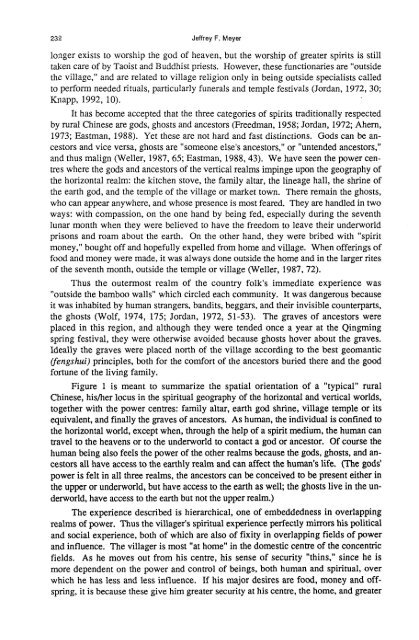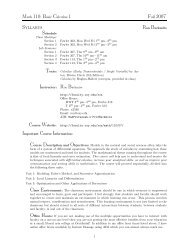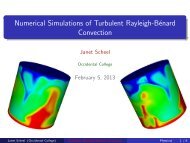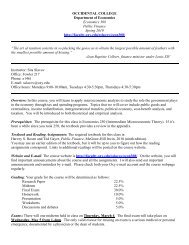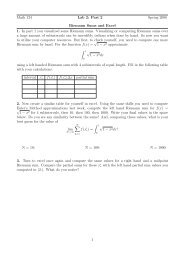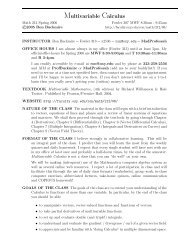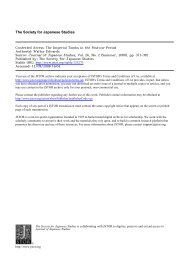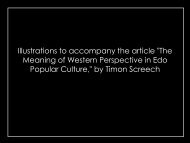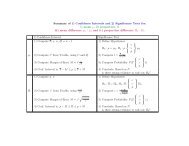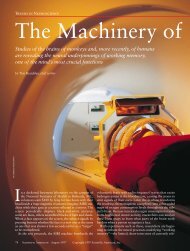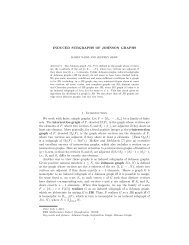Meyer-Villages and Buddhist Monasteries in China.pdf
Meyer-Villages and Buddhist Monasteries in China.pdf
Meyer-Villages and Buddhist Monasteries in China.pdf
You also want an ePaper? Increase the reach of your titles
YUMPU automatically turns print PDFs into web optimized ePapers that Google loves.
232 Jeffrey F. <strong>Meyer</strong>longer exists to worship the god of heaven, but the worship of greater spirits is stilltaken care of by Taoist <strong>and</strong> <strong>Buddhist</strong> priests. However, these functionaries are "outsidethe village," <strong>and</strong> are related to village religion only <strong>in</strong> be<strong>in</strong>g outside specialists calledto perform needed rituals, particularly funerals <strong>and</strong> temple festivals (Jordan, 1972, 30;Knapp, 1992, 10).It has become accepted that the three categories of spirits traditionally respectedby rural Ch<strong>in</strong>ese are gods, ghosts <strong>and</strong> ancestors (Freedman, 1958; Jordan, 1972; Ahern,1973; Eastman, 1988). Yet these are not hard <strong>and</strong> fast dist<strong>in</strong>ctions. Gods can be ancestors<strong>and</strong> vice versa, ghosts are "someone else's ancestors," or "untended ancestors,"<strong>and</strong> thus malign (Weller, 1987, 65; Eastman, 1988, 43). We have seen the power centreswhere the gods <strong>and</strong> ancestors of the vertical realms imp<strong>in</strong>ge upon the geography ofthe horizontal realm: the kitchen stove, the family altar, the l<strong>in</strong>eage hall, the shr<strong>in</strong>e ofthe earth god, <strong>and</strong> the temple of the village or market town. There rema<strong>in</strong> the ghosts,who can appear anywhere, <strong>and</strong> whose presence is most feared. They are h<strong>and</strong>led <strong>in</strong> twoways: with compassion, on the one h<strong>and</strong> by be<strong>in</strong>g fed, especially dur<strong>in</strong>g the seventhlunar month when they were believed to have the freedom to leave their underworldprisons <strong>and</strong> roam about the earth. On the other h<strong>and</strong>, they were bribed with "spiritmoney," bought off <strong>and</strong> hopefully expelled from home <strong>and</strong> village. When offer<strong>in</strong>gs offood <strong>and</strong> money were made, it was always done outside the home <strong>and</strong> <strong>in</strong> the larger ritesof the seventh month, outside the temple or village (Weller, 1987,72).Thus the outermost realm of the country folk's immediate experience was"outside the bamboo walls" which circled each community. It was dangerous becauseit was <strong>in</strong>habited by human strangers, b<strong>and</strong>its, beggars, <strong>and</strong> their <strong>in</strong>visible counterparts,the ghosts (Wolf, 1974, 175; Jordan, 1972, 51-53). The graves of ancestors wereplaced <strong>in</strong> this region, <strong>and</strong> although they were tended once a year at the Q<strong>in</strong>gm<strong>in</strong>gspr<strong>in</strong>g festival, they were otherwise avoided because ghosts hover about the graves.Ideally the graves were placed north of the village accord<strong>in</strong>g to the best geomanticCfengshui) pr<strong>in</strong>ciples, both for the comfort of the ancestors buried there <strong>and</strong> the goodfortune of the liv<strong>in</strong>g family.Figure 1 is meant to summarize the spatial orientation of a "typical" ruralCh<strong>in</strong>ese, hisher locus <strong>in</strong> the spiritual geography of the horizontal <strong>and</strong> vertical worlds,together with the power centres: family altar, earth god shr<strong>in</strong>e, village temple or itsequivalent, <strong>and</strong> f<strong>in</strong>ally the graves of ancestors. As human, the <strong>in</strong>dividual is conf<strong>in</strong>ed tothe horizontal world, except when, through the help of a spirit medium, the human cantravel to the heavens or to the underworld to contact a god or ancestor. Of course thehuman be<strong>in</strong>g also feels the power of the other realms because the gods, ghosts, <strong>and</strong> ancestorsall have access to the earthly realm <strong>and</strong> can affect the human's life. (The gods'power is felt <strong>in</strong> all three realms, the ancestors can be conceived to be present either <strong>in</strong>the upper or underworld, but have access to the earth as well; the ghosts live <strong>in</strong> the underworld,have access to the earth but not the upper realm.)The experience described is hierarchical, one of embeddedness <strong>in</strong> overlapp<strong>in</strong>grealms of power. Thus the villager's spiritual experience perfectly mirrors his political<strong>and</strong> social experience, both of which are also of fixity <strong>in</strong> overlapp<strong>in</strong>g fields of power<strong>and</strong> <strong>in</strong>fluence. The villager is most "at home" <strong>in</strong> the domestic centre of the concentricfields. As he moves out from his centre, his sense of security "th<strong>in</strong>s," s<strong>in</strong>ce he ismore dependent on the power <strong>and</strong> control of be<strong>in</strong>gs, both human <strong>and</strong> spiritual, overwhich he has less <strong>and</strong> less <strong>in</strong>fluence. If his major desires are food, money <strong>and</strong> offspr<strong>in</strong>g,it is because these give him greater security at his centre, the home, <strong>and</strong> greater


